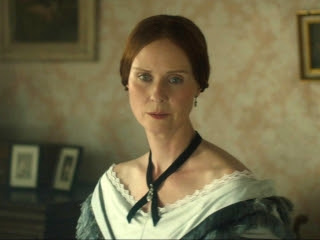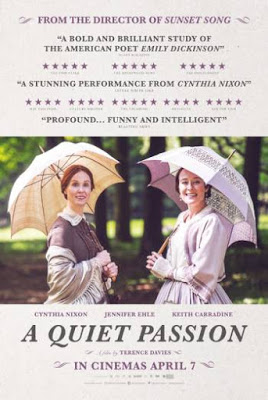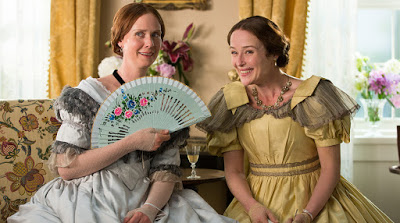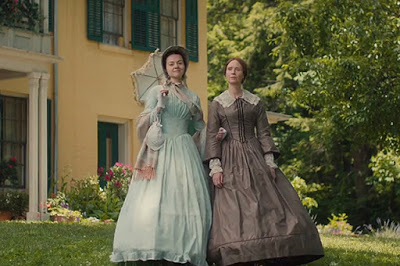A Quiet Passion
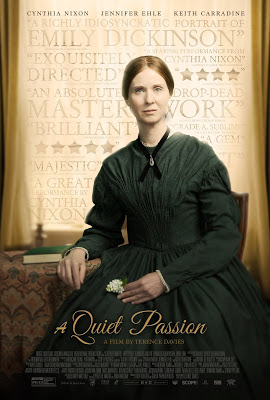
Director:
Terence Davies
Year: 2016
Rating: 7.5
This bio-pic of
the life of Emily Dickinson has layers of melancholy that feel unstintingly
honest and profound and certainly not easy to witness or digest. Not that
I am a fan of Dickinson or poetry in general for that matter and I last read
her poems in college I expect – but the few people I know who are absorbed
by poetry and the one friend who is a published poet admire and love Dickinson
like few others. In her lifetime (1830-1886) Dickinson was able to publish
only 11 poems of the approximately 1,800 that she wrote. She was completely
unknown outside of her inner circle of family and friends and few of them
had much to say about her quaint hobby. After her death, her younger sister
took all her poems and tried to get them published. Many were but often with
editing by the publishers and it wasn’t until 1955 that her poems were published
just as she wanted them.
